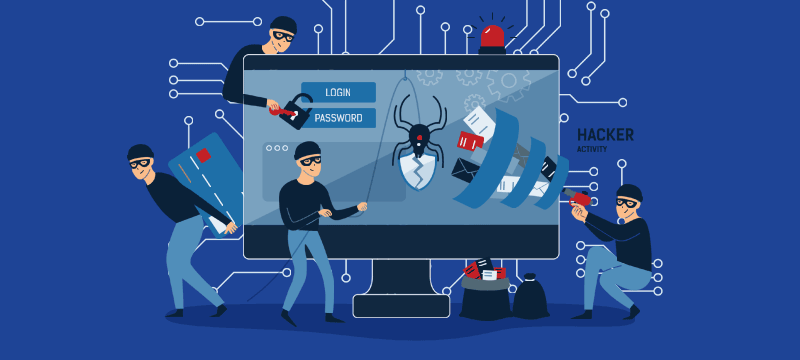Of all websites, online stores are perhaps the choicest targets for hackers. They have valuable user data to be stolen and sold, financial transactions to be hijacked and, with user accounts to be exploited, they make a great place to spread malware infections. They are also ideal places to use ransomware as owners are often panicked into paying up. With all these threats facing online store owners, it is critical that they make their ecommerce sites as secure as possible. In this post, we’ll show you how.
- Ensure you have an SSL certificate
Having an SSL certificate is crucial for online stores because it encrypts any data transmitted between your website and the user’s browser. This means that even if a hacker manages to intercept the data on route, using what is known as a ‘man in the middle attack, they still won’t be able to access the information as they won’t have the keys to unencrypt it.
Another important reason for having an SSL certificate is that it will ensure Google lets potential customers know your website is secure for them to use. The green ‘Secure’ icon shown on browsers only appears next to the URLs of websites with encryption. If you don’t have SSL, the message will say ‘Not Secure’. Obviously, this can have a significant impact on users. - Avoid using apps with known weaknesses
There are some commonly used website applications that have had vulnerabilities over the years which hackers have frequently exploited. These include well-known software like Java and Flash. If you have a relatively new store, built using HTML 5, you are at less risk of issues with Java. That said, you must make sure you are always using the latest version of these apps as these will have fixed previously known vulnerabilities. If possible, however, avoid using them completely. As Microsoft and Google browsers are phasing out support for these apps, it’s time to put them aside anyway. - Limit the personal data you store
The more user data your site collects and stores, the more attractive it is to hackers. If that data is stolen, you put your company at serious risk of law suits, fines from compliance regulators and reputational damage. It makes sense, therefore, to limit the personal data you collect to that which is essential to carry out your business and that you erase it as soon as it is no longer required.
One way to achieve this is to use a payment gateway which enables transactions to be processed away from your actual site, moving the customer to the merchant’s website for the actual inputting of payment data, as happens with PayPal. This way, payment information, like card numbers, is not stored on your server and cannot be stolen. - Check your store for vulnerabilities
In order to accept card payments, your merchant will require that your store complies with industry standards. This, however, cannot be a one-off task; regular vulnerability checks should be the norm. To make sure your site is protected, use services such as Site Scanner to scan your site for malware, spyware, signs of intrusion and other vulnerabilities. - Build robust defences
Strong defences are essential to protecting your site. One key element of that defence is having a firewall in place and ensuring that it is correctly configured. For most online store owners, this will be the responsibility of your web host. A well-configured firewall will ensure there is continual protection against intrusion and that threats, including DDoS, are detected and dealt with.
In addition, you should make provision to prevent data loss and know automatically if any data goes missing. - Secure your emails
Encrypting your emails ensures that any information you send internally or to customers is not going to get tampered with on route. This prevents serious issues arising, such as your emails being changed by hackers to send recipients to cloned websites or to open malicious files. It also stops hackers using internal emails as a phishing device to get access to usernames and passwords on your company’s server.
In addition, use email scanners, like SpamExperts, which eliminates 99.98% of spam, virus, phishing and malware attacks before they reach your inbox. - Backup everything
Backing up your website regularly can prevent many of the problems caused by hacking becoming serious issues. If you are infected by ransomware, a backup means you won’t have to pay. If a hacker deletes your entire website or leaves it infested with hard to find malware, you can restore everything easily. It means your site won’t be offline for long and you can be back in business quickly.
And although a backup cannot retrieve any personal data that a hacker has stolen, it will mean that you still retain a copy of it, should they decide to delete your database after taking what they want.
Conclusion
Hackers can take you offline, delete your files, cause legal and compliance issues and destroy your reputation. It is no surprise, then, that 60% of hacked sites go out of business within 6 months. Hopefully, the ecommerce security tips provided here will help you improve the security of your online store and keep hackers at bay.
If you are looking for secure hosting for your online store, visit our homepage to see our range of web hosting and security solutions.

